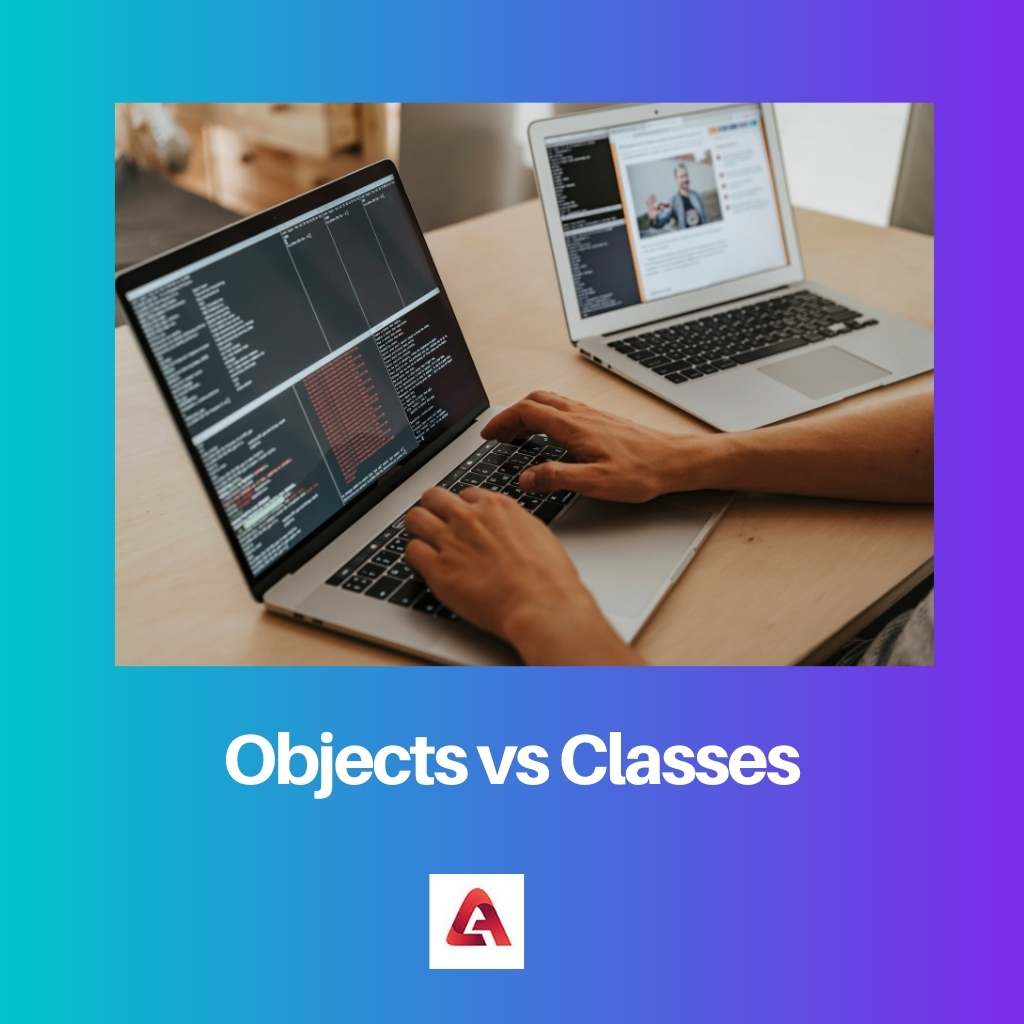Object-oriented programming languages have two different essential concepts, namely objects and classes. An object is an instantiation of a class.
Key Takeaways
- Objects are instances of classes, representing individual entities with specific attributes and behaviors.
- Classes serve as blueprints for creating objects and defining their properties and methods.
- Objects interact with one another, while classes structure those interactions.
Objects vs Classes
An object is a variable under object-oriented programming, and it serves as one of the many instances of a class that can be manipulated. Classes are blueprints or templates that are used to create instances like objects and also describe object behavior as well, but they cannot be manipulated.

It consists of data (also known as a state) and code (also known as behaviour). Each object is responsible for carrying out its own tasks in programming.
On the other hand, a class acts as a blueprint for an object. It is a form of concept that can be used in object-oriented programming languages.
Comparison Table
| Parameters of Comparison | Objects | Classes |
|---|---|---|
| Concept | It is one of the instances of class. | It is a blueprint which can be used to create various instances. |
| Variables | Variable | Type |
| Memory | Allocated memory. | No allocated memory |
| Existence | Physical existence | Logical existence |
| Declaration | It can be declared multiple times | It can only be declared once. |
| Manipulated | It can be manipulated. | It cannot be manipulated. |
| Keywords | Developed in C++ with a class name and new keywords in Java. | Declared with class keywords. |
| Associated Value | Has associated values. | It has no values that can be associated. |
What are Objects?
An object is a physical entity that contains methods and properties that allow the use of data. It assists you in determining the class’s conduct.
An object is a collection of characteristics and methods used to make a specific type of data value. In addition to polymorphism and inheritance, an object is an extension of an abstract data type.
Methods also enable the concealment and standardization of task execution for specific operations on various sorts of objects. Methods are used to access a class’s objects.
Objects can be declared several times with the help of class names developed in C++ and the new keywords available in Java.
What are Classes?
A class is a logical entity that dictates the behaviour of an object and what it will contain, hence acting as a blueprint. It gives all the initial values for member functions or methods and member variables.
Its data type is essentially user-defined and comes with its own set of data members and member functions. This can be accessed and used by establishing a class instance.
Classes are an essential part of OOP. With the use of classes, variables and methods can be isolated in specific objects instead of being available to all elements of the program.
Classes can only be declared once and by using a class keyword like class student {}. It also doesn’t allocate any memory after its creation. Since they aren’t in the memory, it means that they cannot be manipulated.
Main Differences Between Objects and Classes
- Objects are created in C++ with new keywords available in Java and a class name, whereas classes can be declared with class keywords.
- An object has values that are associated with it. A class does not have any values that can be associated.






